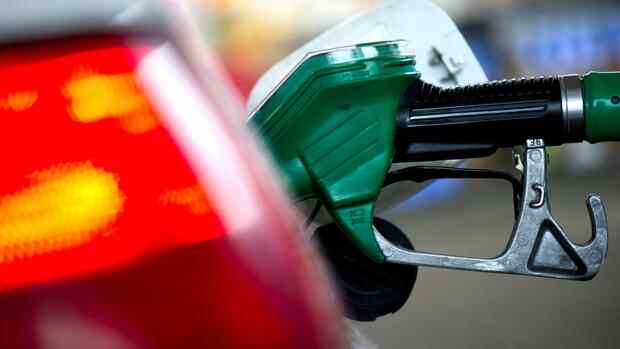On average, private consumers had to pay 41.9 percent more for premium petrol and 62.6 percent for diesel than a year earlier.
(Photo: dpa)
Berlin Natural gas, butter, coffee: German companies raised their prices at record speed after the start of the war in Ukraine. Producer prices for commercial products rose by an average of 30.9 percent in March compared to the same month last year. This is the strongest increase “since the survey began in 1949,” said the Federal Statistical Office on Wednesday.
Economists polled by Reuters had expected only 28.2 percent, down from 25.9 percent in February. “The current data are already reflecting the first effects of the war in Ukraine,” the statisticians said. After the Russian invasion on February 24, energy products such as natural gas in particular have become significantly more expensive, but so have many other goods such as food.
This is bad news for consumers in Germany, as they have to be prepared for persistently high price increases. Because the trade should pass on at least part of it to the end consumer. Producer prices are seen as a precursor to the development of inflation.
In the statistics, the prices are listed from the factory gate – even before the products are further processed or sold. At 7.3 percent, the inflation rate is currently higher than it has been since 1981. The economists also consider double-digit values to be possible.
Top jobs of the day
Find the best jobs now and
be notified by email.
According to the statisticians, the main reason for the sharp rise in producer prices was once again energy. It rose in March by an average of 83.8 percent. Natural gas cost 144.8 percent more than in March 2021, electricity 85.1 and light heating oil 130.8 percent more. If you exclude energy, producer prices were only 14.0 percent above the previous year’s value.
On average, private consumers had to pay 41.9 percent more for premium petrol and 62.6 percent for diesel than a year earlier.
“There have rarely been such high price increases for heating oil and fuels in Germany before,” the statisticians say. Similar developments have so far only been observed in connection with the two oil crises of 1974 and 1980 and the financial market and economic crisis of 2008/2009. “However, in none of these crises was the increase in consumer prices for fuels higher than in March 2022 compared to the previous year,” summarized the Federal Office the result of the investigation.
For food, the premium was an average of 12.2 percent. The prices for untreated vegetable oils (+72.3 percent), butter (+56.0 percent) and coffee (+20.5 percent) rose particularly sharply. Significantly more was also asked for fertilizers and nitrogen compounds (+87.2 percent).
More: What is inflation? Definition, examples, meaning
